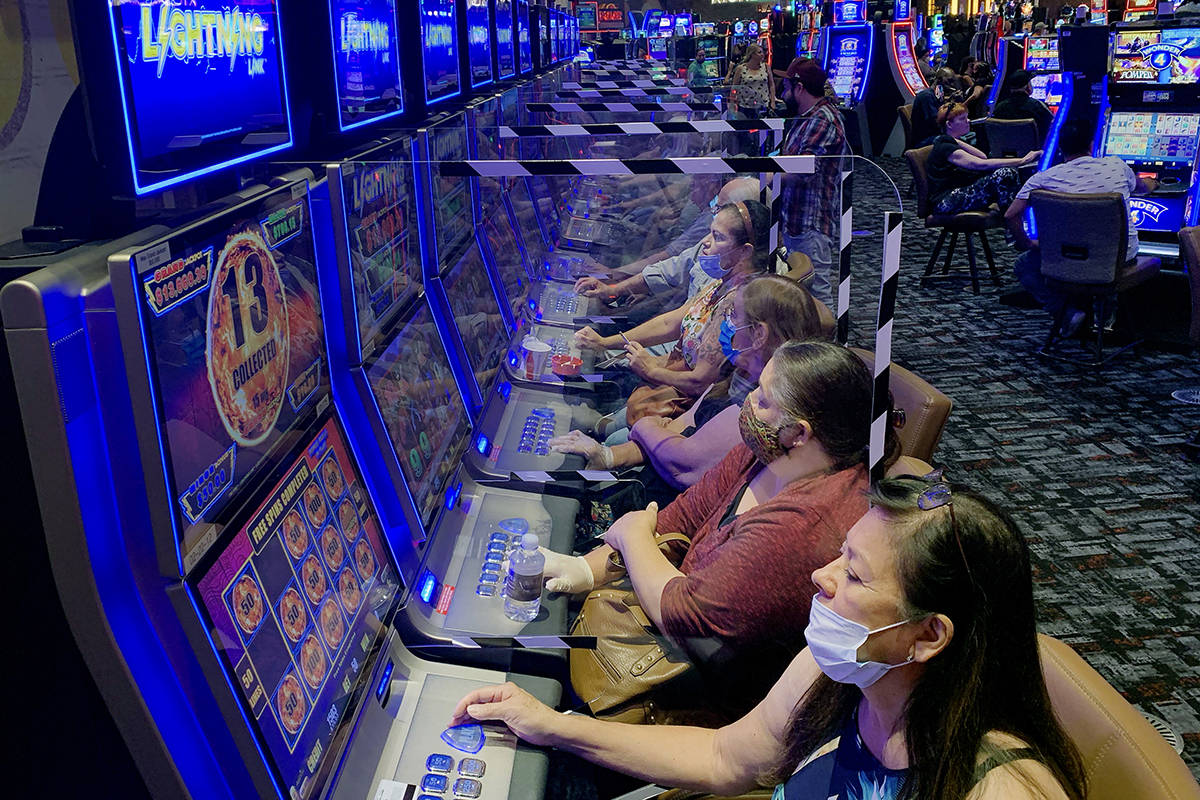Arizona casinos’ virus safety plan mirrored Las Vegas casinos’; now they’re closed

Three Arizona casinos have gone dark once again.
Gila River Gaming Enterprises announced the closures Thursday, citing a spike in COVID-19 cases in Arizona. They had been open less than five weeks and had been operating with health and safety protocols nearly identical to those in Nevada casinos.
Both states’ protocols pale in comparison with other gaming markets, such as Massachusetts and California.
“The casino measures I observed in Arizona are very similar to what we are seeing in Nevada at the larger properties,” said Greg Chase, founder and CEO of Las Vegas-based Experience Strategy Associates. “California tribal gaming has been by far the strictest I have seen.”
Pandemic ‘still very, very real’
The closures of Gila River’s Wild Horse Pass, Lone Butte and Vee Quiva went into effect at 2 a.m. Thursday and are set to last two weeks. All employees will continue to receive full pay and health benefits throughout the closure, according to a Thursday news release.
Casino operators in both Arizona and Nevada followed similar safety protocols — including socially distanced slot machines and requiring staff to wear masks — but there was a wide discrepancy in the number of COVID-19 cases between the states.
Arizona averaged more than 1,500 new cases per day the week of June 6, according to data from the state’s Department of Health Services. Meanwhile, Nevada’s seven-day average for Nevada in that period was 201, according to state data.
Nevada has stepped up some of its regulations since its first casinos reopened on June 4. On Wednesday, the state’s Gaming Control Board ordered casinos to require players and spectators of most casino table and card games to wear protective face coverings.
But stricter protocols are appearing in other states.
The Massachusetts Gaming Commission’s casino reopening plan, revealed Wednesday, requires 6-foot Plexiglas shields to be installed at table games and patrons to wear masks and doesn’t allow craps, poker or roulette play. All employees and patrons must wear facial coverings when inside casino properties, and guests can lower their masks only when they take a drink. Bars inside casinos will be closed initially.
In California tribal casinos, masks are required at all times unless eating, drinking or smoking. Smoke-free areas are also available to customers, and all entrants must have their temperature checked, according to Chase.
In Nevada, he said the number of visitors not wearing masks or taking precautions against the virus is a cause for concern.
“We all want our local economy to return and return quickly, but we cannot rush this for short-term revenue wins versus greater public health and safety,” he said. “Just because buildings have reopened, we shouldn’t be celebrating the end of the pandemic, it is still very, very real.”
He expects travel demand to Las Vegas will drop if the state’s casinos don’t enhance their safety guidelines, especially if a large number of employees start to get sick.
“If an entire department of key employees like security or cage employees were to get sick, it would risk a property from being able to operate within strict regulations and licensing requirements,” Chase said.
‘Long way back’
But even with a constant mix of challenges from the pandemic, Las Vegas casinos probably will do all they can do avoid shutting down a second time, according to Brendan Bussmann, director of government affairs for Las Vegas-based Global Market Advisors.
“It already has a long way back,” he said. “Another shutdown of our state’s No. 1 industry would be devastating beyond the hit that it has already taken over the last three months.”
Bussmann said operators should have a plan in place for any employees testing positive and continue to focus on the health and safety of patrons and employees.
“There is no better industry that can react and respond to the challenges that it has and will continue to face,” he said.
Gila River plans to use two-week closure to see whether the rise of COVID-19 cases in Arizona subsides and re-examine its operating strategies, including disinfection procedures, masking and social distancing measures. It will update safety protocols “as necessary.”
Contact Bailey Schulz at bschulz@reviewjournal.com or 702-383-0233. Follow @bailey_schulz on Twitter.